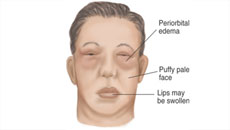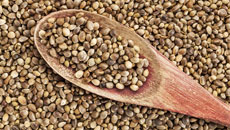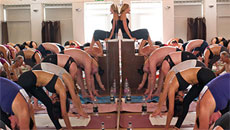Eating too much sugar is linked to bodily problems.
You eat more sugar than you may think. Whole wheat bread, ketchup, crackers, salad dressings, fruit juice and non-dairy milk are just some common staple foods that contain added sugars. As these items are slowly digested by your body, they are used by your cells for energy, although sugar has no nutritional value on its own. However, eating too much sugar is linked to bodily problems. Such problematic sugar is sourced in manufactured items containing high amounts of added sugar for the purposes of taste and/or shelf life. Candies, baked goods, and soft drinks are examples.
According to Statistics Canada, the average Canadian consumes over 25 teaspoons of sugar in a day. Heart & Stroke Foundation of Canada recommends that you consume no more than 10 per cent of total calories per day from added sugars, and ideally less than five per cent; 10 per cent roughly translates to about 12 teaspoons. Sugars are evidently found in fruits or vegetables but need not be avoided as there are many other beneficial compounds present as well.
While sugar is often deemed as harmful and it is suggested that we avoid too much of it, an important part of understanding its impacts stems from the root question: why do we crave sugar? Cravings for any type of food is caused by the same area of the brain that controls memory, pleasure and reward. While sugar cravings may result from a sugar imbalance, they may also stem from memory of endorphins that are released after consumption. This is the same behaviour addiction display. Therefore, an emotional element is also present.

After recognizing the root issue, it is just as important to understand the effects sugar has on the body. One of the most common side effects is diabetes, alongside heart disease. Other unwanted health issues include obesity, high blood cholesterol and cavities. A sugar-rich diet also leads to skin problems such as acne. Another possibility is the increased risk of depression as sugar has been known to increase inflammation throughout the body, including the brain itself.
The intent is not a sugar scare; not all these issues are bound to happen to you. Rather, the point is to steer clear of the risk of developing such issues through moderation and conscious awareness.
Heart & Stroke mentions the following ways to reduce your sugar intake:
Drinking dirty
Sugar comes in liquid forms as well! Flavour your water with healthy options such as strawberries.
Avoid over-consumption of drinks like the below:
• Pop = 10 teaspoons of sugar
• Specialty Coffee = 7 teaspoons of sugar
• 100% Orange Juice = 5.5 teaspoons of sugar
• Sports Drinks = 5 teaspoons of sugar
Think whole
Try to leave foods as close to their natural state as possible. Do not process foods often or dress them with heavily processed food alternatives.

Snack smart
A seemingly small food item can contain high amounts of concentrated sugar, such as a muffin or pastry. Try yogurt or veggies with a dip if you need something to munch on.
Proactive prepping
Cook at home rather than eating out. Choose recipes that involve lower sugar levels.
Know what you eat
Do not forget to read the nutritional labels or ingredients list when you go for groceries. If sugar is listed as the first or second ingredient on a product, the sugar levels are most probably high. If you know what you are putting in your body, you are better equipped to treat it well.
With these easy changes, you will be able to notice a significant difference in the way you feel and think. The idea is not to completely erase sugar from your diet, but to gradually make healthier decisions when it comes to the type and quantity of sugar you are consuming.





